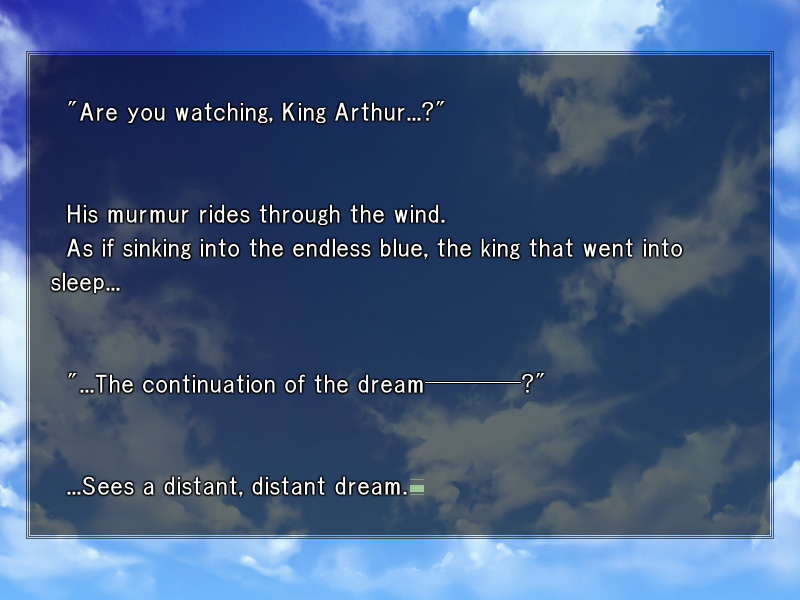Not to the degree that it was in her original self, nor was she so particular about who she wanted to be liked and accepted by. That aspect was there, but it was far less prominent and didn't drive her actions to nearly the same extent until the very end. As U-Olga, her main motivation was her ambitions, as well as her false memories compelling her to act in a way that would benefit Marisbury/the Alien World (rather than the need to prove herself as being worthy of her position).
Perhaps I didn't make part of my views completely clear. before. I consider a person's memories to be a fundamental part of who they are. Wipe the memories or alter them on a large enough scale, and you've effectively killed and replaced the person who existed before the memory loss. I know that Hakuno might seem to disprove this, but given their condition they had no memories to lose in the first place and therefore no identity to destroy. If you've seen a loved one start to change as a result of Alzheimer's or another form of dementia, you'll know what I mean. It says a lot that in those literal last words, she spoke of her old life as if the original Olga wasn't actually her.
With her original memories gone and seemingly lost forever, U-Olga is for all respects and purposes a new individual. One who is similar to her original self, but not identical by any means- when Guda and Mash say otherwise, that is because they don't want to admit that the Olga they knew is gone and that U-Olga is not her. (Daybit is a bit different, but with a perspective as alien as his own he may simply be viewing it only in terms of U-Olga's vessel.) If and only if she gets her memories back, she would be the true Olga again, albeit changed for the experience.






 Reply With Quote
Reply With Quote












